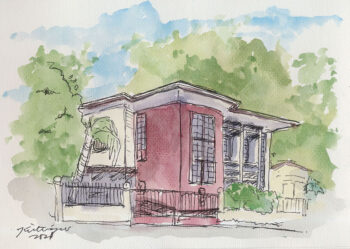KORONADAL CITY (MindaNews / 14 December) – The economic team of the Bangsamoro Autonomous Region in Muslim Mindanao (BARMM) is bullish on the area’s investment prospects with the formal inclusion of Cotabato City to the region, particularly in boosting BARMM’s financial system.
BARMM is slated to formally welcome to its fold tomorrow, December 15, Cotabato City, the seat of government of the BARMM as well as the defunct Autonomous Region in Muslim Mindanao.
Ishak Mastura, chair of the BARMM Regional Board of Investments (RBOI), lamented that BARMM is the country’s region with the least banks, but the inclusion of Cotabato City to the Bangsamoro region will drastically change the financial landscape and will augur well to the investment climate of the region.
“(With its inclusion to the BARMM, we will be) promoting Cotabato City as the Islamic banking and financial hub not only of the region but of the country,” Mastura said in a statement on Monday.
Based on last year’s results of the plebiscite in Cotabato City for the ratification of Republic Act 11054 or the Organic Law for the BARMM, 36,682 voted in favor of the city’s inclusion against the 24,994 “no” votes, or a difference of 11,688 votes.
Mohamad Pasigan, chair of RBOI’s board of governors, and Mastura recently met with Malaysian Ambassador to the Philippines Norman Muhamad and Malaysian embassy counsellor Irwan Rizani to discuss the possible opening of a branch of Malayan Banking Berhad (Maybank), Malaysia’s universal bank and the biggest bank in that country, in Cotabato City.
Mastura said they would like to see Maybank’s Islamic banking subsidiary, Maybank Islamic, the largest Islamic bank within the Association of Southeast Asian Nations, to follow suit once Maybank opens a branch in Cotabato City.
Currently, Al-Amanah Islamic Investment Bank is the only Islamic bank that operates in the country and has a branch in Cotabato City.
That is set to change with last year’s passage of Republic Act 11439 or the Philippine Islamic Banking Act, Mastura said.
According to him, Islamic banks and financial institutions that will open branches in the BARMM will enjoy fiscal incentives such as income tax holidays and reduced tariffs for imported capital equipment.
BARMM straddles the provinces of Maguindanao, Lanao del Sur, Basilan, Sulu and Tawi-tawi and the cities of Marawi, Lamitan and Cotabato (with its formal turnover tomorrow) and 63 villages from six towns in North Cotabato.
Cotabato City is strategically located and hosts the most number of banks within the Bangsamoro region. The city is also home to a branch of the Banko Sentral ng Pilipinas or Central Bank.
The banking profile of BARMM will improve dramatically with Cotabato City’s inclusion to the region, Mastura said.
But even before its formal inclusion to the BARMM, Cotabato City was already serving in that role considering that it is the provisional capital of BARMM with the Bangsamoro government complex located in the city, according to the RBOI statement.
With the BARMM government having an annual block grant amounting to P70 billion this year and P75 billion next year going thru the banking system in Cotabato City, this volume of money alone cements its role as the financial center of the region, Mastura noted.
In addition, government money also goes through the city to service the needs of the military in the region with the 6th Infantry Division, one of the Armed Forces of the Philippines’ biggest divisions in terms of personnel, resources and budget, located in neighboring Datu Odin Sinsuat, Maguindanao.
International donors and official development assistance from foreign aid agencies including the agencies of the United Nations, which have programs to assist the BARMM, also course their money through the city’s financial system, Mastura said.
That is aside from the huge remittances flowing to its banks from Overseas Filipino Workers, of which Central Mindanao is a top recruiter and source for several years now, particularly those working in the Middle East, he said.
BARMM spokesperson Naguib Sinarimbo recently disclosed that the Inter Governmental Relations Body, which is mandated to coordinate and resolve issues on intergovernmental relations between the national and the BARMM governments, scheduled the transfer of supervision of Cotabato City to the Bangsamoro region on December 15.
Sinarimbo said that President Rodrigo Duterte recently agreed to turn over Cotabato City to the Bangsamoro region based on discussions held in Malacanang last year.
Cotabato City is under Soccsksargen or Region 12 and used to be its seat of government until the regional center was transferred to Koronadal City, South Cotabato during the Arroyo administration.
Cotabato City Mayor Cynthia Guiani-Sayadi early this year appealed to President Duterte to “hold in abeyance the turnover of the city to BARMM” and asked for a status quo until the end of the transition period on June 30, 2022.
Guiani-Sayadi disclosed that local officials have received death threats and warnings to bomb the city for their opposition to be part of the BARMM.
“It is very disheartening that it seems like we have no freedom to express what we truly feel and to serve as the voice of our fellow Cotabateños in rejecting the BARMM,” she said in a statement published by the Oblates-owned DXMS radio station based in Cotabato City.
“You see why we do not want to belong to the region? Instead of you trying to impress us with your accountable and excellent governance, you have shown us how you failed your people. And more horribly, how you can become so violent when there are people who try to go against you,” she added.
Guiani-Sayadi vowed to continue fighting against the city’s inclusion to the BARMM, “even at the cost of her life.”
In opposing the city’s turnover to the Bangsamoro region, Guiani-Sayadi stressed earlier that the Supreme Court has yet to resolve her petition questioning the results of the plebiscite that was allegedly marred by irregularities.
The mayor also pointed out that the BARMM still has no local government and education codes, among other priority legislations.
The Bangsamoro Transition Authority, the interim governing body of the BARMM, approved the Bangsamoro Administrative Code in October.







